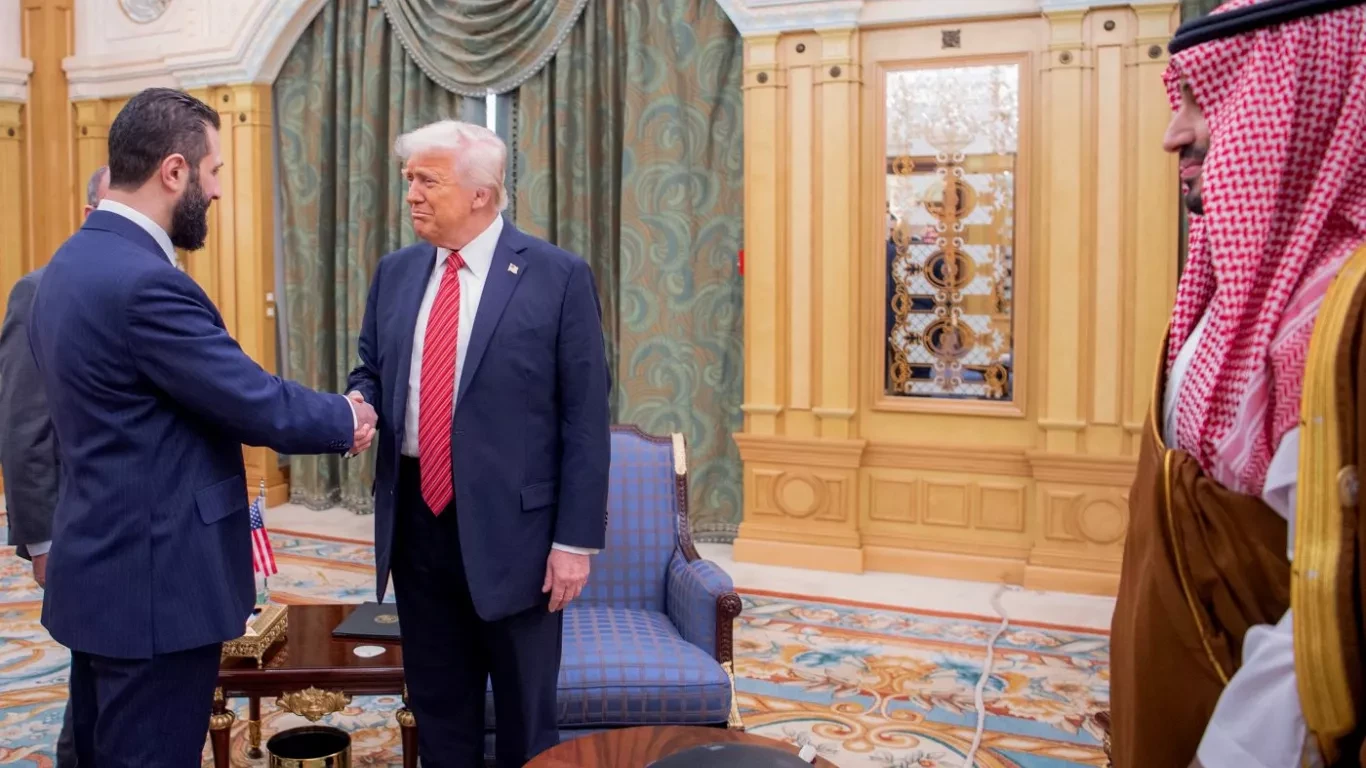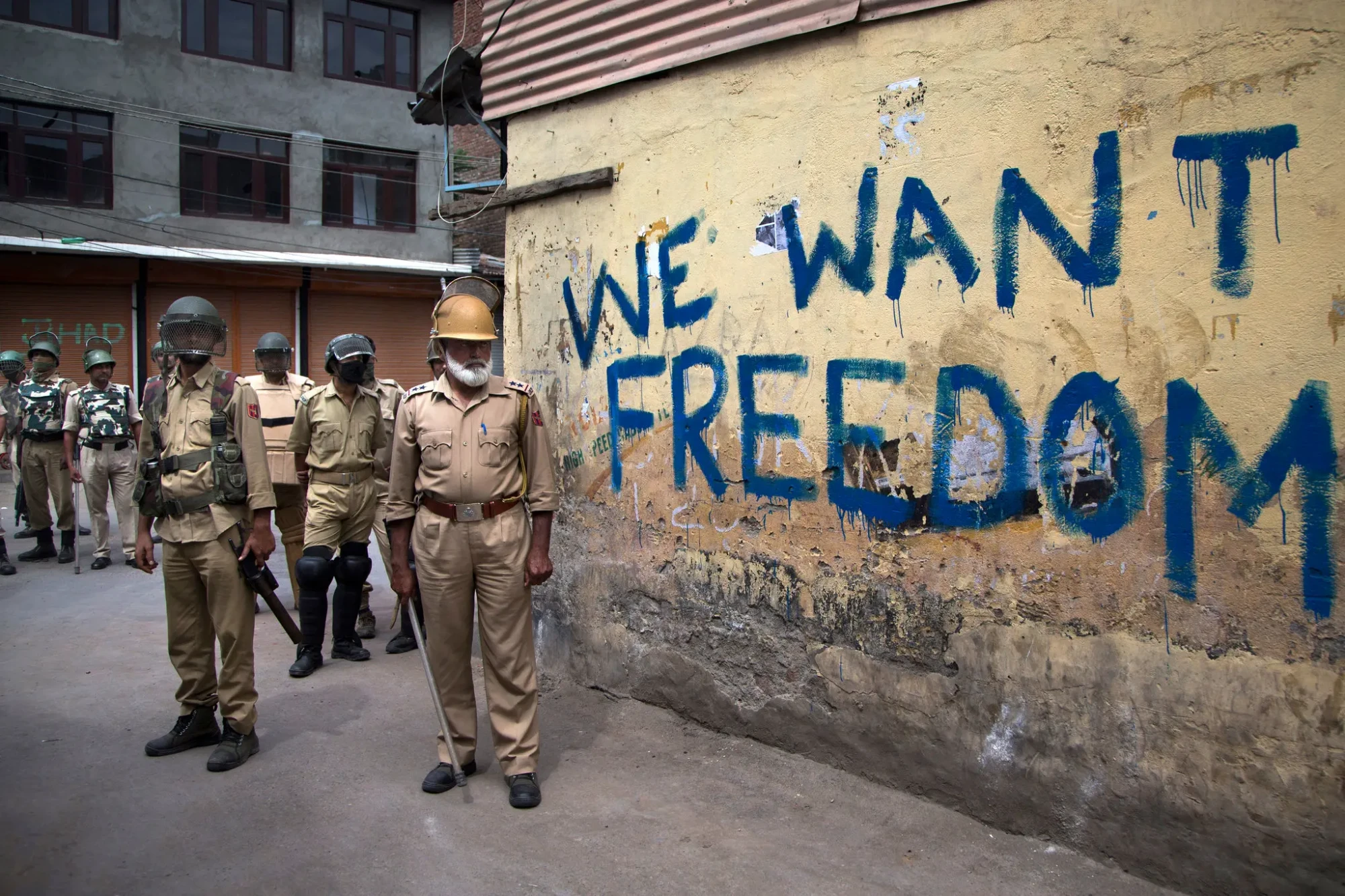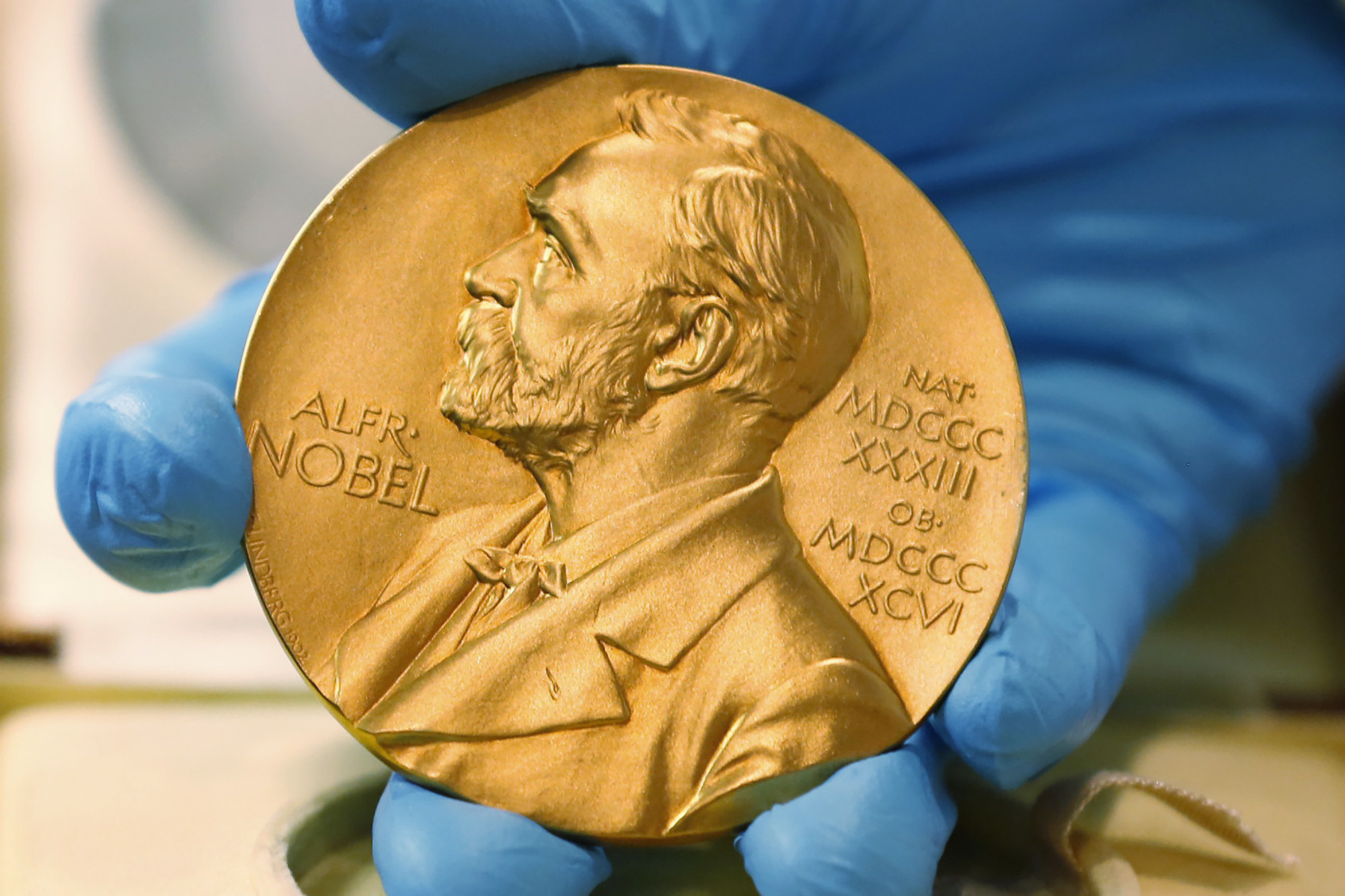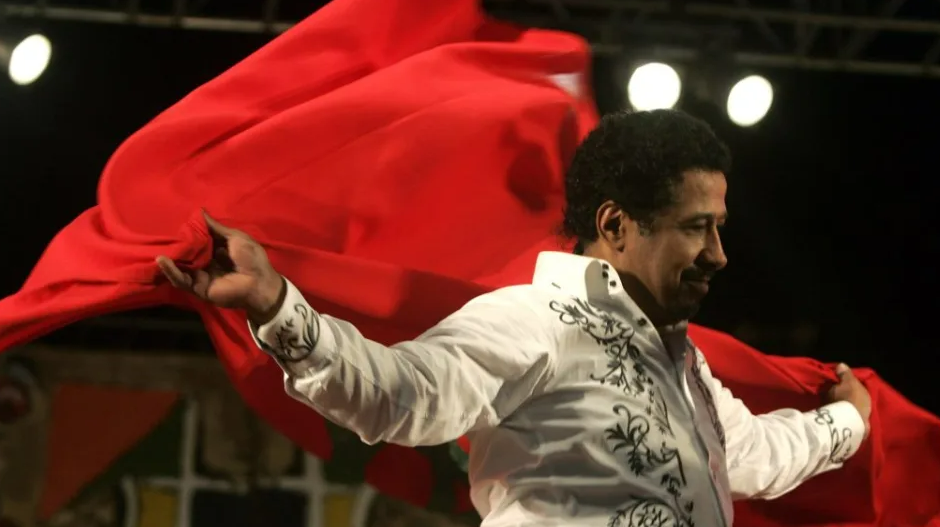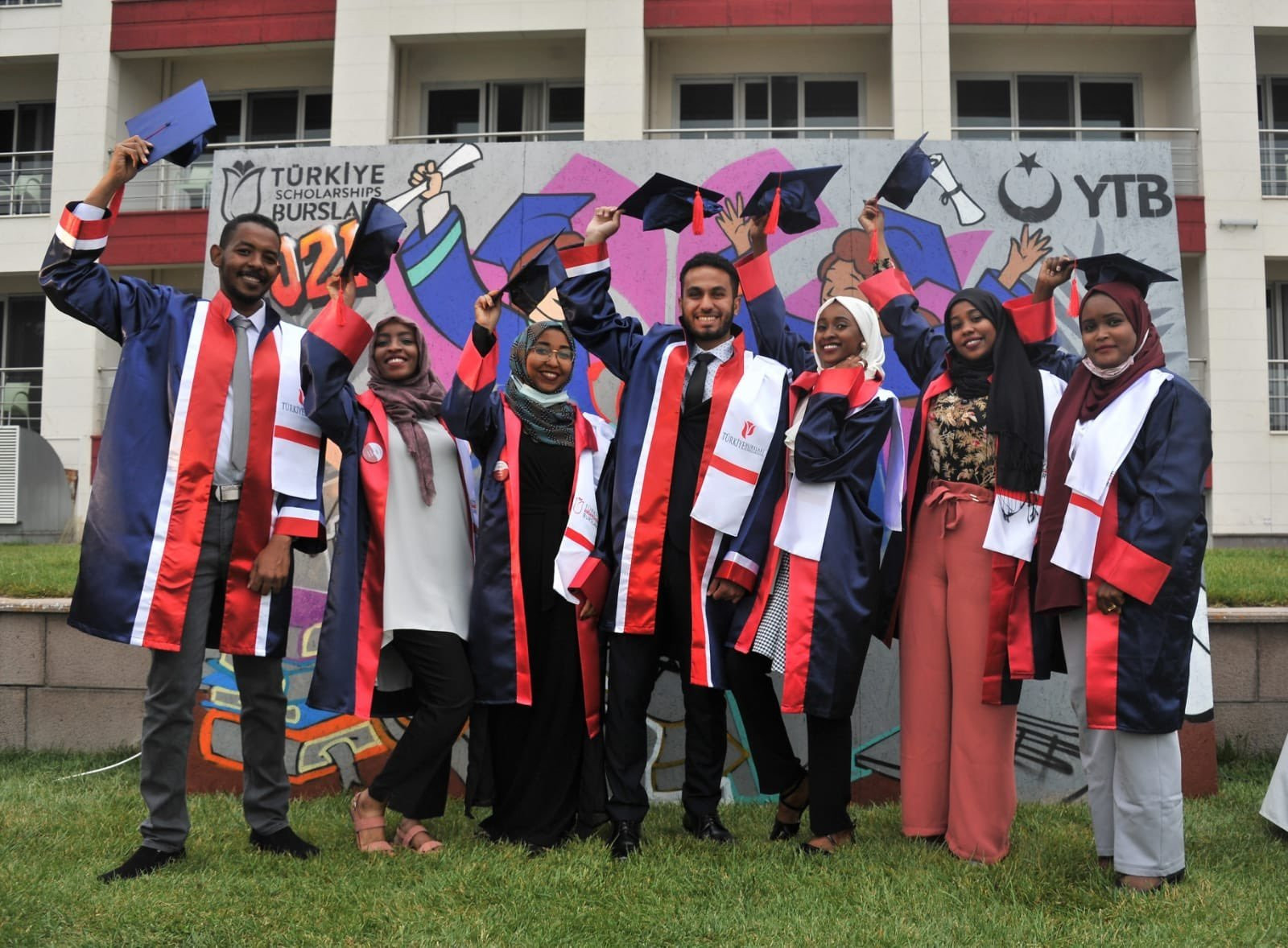
The National Motivations and Global Consequences of International Education and the Turkish Context
It is not a new phenomenon for students to travel long distances in search of knowledge and the opportunity to engage with leading scholars in a particular field. The travels of scholars and missionaries to different regions to spread religious teachings, along with the travels of students and seekers to obtain religious education, can be considered pioneering examples of academic mobility as the most important sources of knowledge of their time were carried among different geographies. In this regard, Timbuktu, which became prominent among the centers of Islamic education in West Africa around the 13th century, attracted scholars, thinkers, and students from all over the world and became a vibrant center of scholarship in fields such as mathematics, law, astronomy, science, and history, representing a strong example of the relatively recent past (Kane, 2023).
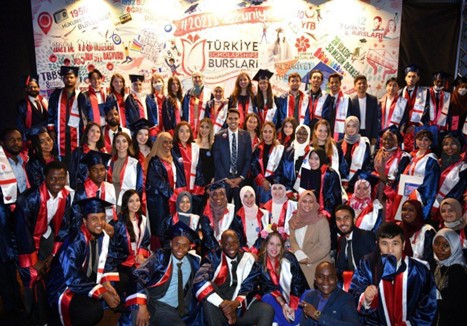
International students that completed their higher education with YTB’s Türkiye Scholarships, 2021
International Mobility in Higher Education
International education has evolved as an instrument within the established and absolute systems of nation-states, where international relations, i.e., diplomacy, are based on various interests. Particularly during the colonial period, student mobility was encouraged to create an educated elite familiar with the values, economic, and political priorities of the colonizers to support their local administration (Rizvi, 2011). With the decolonization period, policies such as the Fulbright Scholarships of the United States, the education program of the Soviet Union, and the Colombo Plan of the Commonwealth countries began to be implemented, whereby states brought international students to their countries to provide education with their own resources. In this regard, the extensive technical assistance and higher education scholarships offered by the Soviet Union were considered to align with the ideological goal of introducing socialism as an alternative (Kret, 2013). As a counter-move, the Fulbright program of the United States was implemented as a "soft power" practice to prevent newly independent countries from joining the communist bloc (Nye, 2005). On the other hand, the Colombo Plan aimed to provide education to foster the development of a skilled labor force in newly independent countries (Oakman, 2005).
Along with the increasingly widespread scholarship programs targeting international students with differentiated political objectives, international mobility at the global level has increased from 108,000 international students in 1950 to 6.4 million in 2022 (Carter, 1973; OECD, 2023). On the one hand, international student mobility has made it possible to improve educational practices through the exchange of experiences, to develop the skills and qualities of individuals to contribute to progress, and to mitigate the effects of unequal development between societies through the transfer of knowledge and technologies. Within the historical process, this situation has established the global knowledge economy, playing a significant role in the international economy alongside globalization (Gürüz, 2008). On the other hand, the mobility of ideas and values has improved interpersonal and international relations by increasing intercultural dialogue, developing an international understanding, increasing sympathy for the host country, and raising responsible citizens globally. In this regard, international student mobility has gained widespread acceptance because it is regarded as a crucial element of cultural or public diplomacy practices. (Peterson, 2014; Akli, 2012; Altbach & Knight, 2007).
Internationalization of Higher Education in Türkiye
When we look at Türkiye's experiences with international students, we can trace them back to the final years of the Ottoman Empire. Various studies highlight the education of students sent by Arab, Albanian, and Kurdish tribes at the Aşiret Mektebi (School for Tribes) established in Istanbul (Bolat, 2017; Akın, 2020; Yavaş, 2022). The education of these students, referred to as "ajnabis" (foreigners), belonging to tribes living within the borders of the state but in distant provinces (Bolat, 2017), was adopted as a state policy aiming to strengthen ties with their tribes through education (Akın, 2020) and to benefit from the trained human resources in public duties (Yavaş, 202). Similarly, educational opportunities offered to international students continued in limited ways during the early years of the Republic period, parallel to global trends. Aligned with global trends, Türkiye began to show increased interest in international student programs after World War II. Student and expert exchanges included in bilateral and multilateral agreements, along with a certain number of scholarships, became a means for Türkiye to enhance cooperation and strengthen relations.
Although the internationalization of higher education in Türkiye has been a long-standing phenomenon, it was formalized and monitored with the "Law on Foreign Students Studying in Türkiye" enacted in 1983 (Official Gazette of the Republic of Türkiye, October 14, 1983). Rather than a regulation aimed at encouraging international students to study in Türkiye, it was a law that determined the responsibilities of the military government regarding how students would be monitored during their education process primarily based on security concerns. However, during the negotiations, it was emphasized that the issue of international students was important in promoting Türkiye and Turkish culture, academic knowledge, intellectual capacity, and technological development (Advisory Parliament of Türkiye Journal, 1983).
As of the 1980s, Türkiye's desire to establish new partnerships to support itself in the Cyprus case and the transition to an export-oriented, free-market economic system following the January 24 (1980) decisions, which necessitated diversified economic cooperation, formed the basic motivations of its foreign policy approach. Hence, international students and international education have become mechanisms to support this foreign policy. For instance, Türkiye has strengthened its relations with the Organization of Islamic Cooperation (OIC) during this period (Aykan, 1993). It also supported the higher education scholarship program initiated in 1983 by the Islamic Development Bank for the education and expertise in technical fields of Muslim communities in non-member countries. A protocol was signed in 1989, aiming to familiarize the students with the Turkish language, culture, and heritage so that they could contribute to the development of their communities. The program has provided education opportunities to hundreds of students from Sri Lanka, Myanmar, Burma, Kenya, Tanzania, and Malawi in Türkiye.
In the 1990s, following the dissolution of the Soviet Union and the independence of the Turkic Republics, various collaborations were designed to support state-building and development processes by enhancing relations with these newly independent states and providing scholarships to study at higher education institutions in Türkiye was one of these projects. Thus, the "Grand Student Project" (Büyük Öğrenci Projesi - BÖP) initiated in 1992, enabled international students from the Balkans, Eastern Europe, Russia, and Central Asia, particularly the Turkic Republics, to come to Türkiye and pursue their education with scholarships. The Minister of National Education initiated the scholarship program to foster the growth of human resources, promote the Turkish language and culture, and build connections with neighboring communities (Yarman Vural & Alkan, 2009).
Implemented between 1992 and 2011, BÖP contributed to internationalization in higher education; however, it could only partially achieve its goals. Despite the relatively low number of studies conducted on the program, it was observed that the number of qualified applications was low, and universities did not actively participate enough in promoting scholarships. Additionally, there were certain inadequacies in the public services offered to international students. These included issues with accommodation, visa, and health insurance, insufficient support in Turkish language teaching, and a lack of consideration for the changing educational requirements of international students (Yarman Vural & Alkan, 2009; Özoğlu, Gür, & Çoşkun, 2015). Hence, in parallel with the new orientations in Türkiye's foreign policy, international student policies were restructured and centralized in 2012.
Coordination of government-funded scholarship programs, initially established under the Prime Ministry at the time, was transferred to the Presidency for Turks Abroad and Related Communities (YTB) with the aim of expanding the target student audience to allow global access. The program, named Türkiye Scholarships, aims to support public and education diplomacy, promote academic and scientific development in Turkish universities, strengthen the internationalization of higher education, and encourage development cooperation policies (YTB, 2012; Official Gazette, June 17, 2014). As a result of the impact of this program in promoting Turkish higher education on a global scale and the internationalization strategy adopted by the Council of Higher Education, the number of international students enrolled in Turkish universities has increased dramatically from approximately 25,000 in the 2010-2011 academic year to over 300,000 in the 2022-2023 academic year.
Türkiye has gained a significant global position due to the increasing international student mobility in the 21st century. International education has become integral to its foreign policy to develop relations with new countries, establish different partnerships, and strengthen ties by providing support through development cooperation. Therefore, Türkiye's active diplomacy and cultural relations strategy, particularly in recent years, have contributed to the increase in the number of international students in the country, making it a global education destination. In return, the network formed by international alumni has strengthened relationships and created cultural and economic depth on a global scale. However, we should note that a more detailed analysis is required to determine whether the alumni network indeed constitutes a sustainable global interaction and cooperation platform.
International education has become integral to Türkiye's foreign policy to develop relations with new countries, establish different partnerships, and strengthen ties by providing support through development cooperation.
In conclusion, student mobility has continued to evolve with different dynamics throughout history and has played a significant role as an instrument of international relations today. Starting with the centralization of religious teachings, student mobility is part of international education today. Since the colonial period, the tendency of nation-states to use international education for their own interests has continued to increase with the decolonization period. State-sponsored scholarship programs and educational policies led to a rapid increase in international student mobility, resulting in positive effects such as experience exchange, development of educational practices, and increased intercultural dialogue. These developments have brought dynamics such as cultural interaction, the spread of ideas and values, strengthened diplomatic ties, and the contribution to the local economy through the increased educational capacity of internationalizing universities, along with a globalized economy, an internationalized labor market, and international development cooperation. These factors make international education attractive and strengthen its impact on individuals and policymakers. Hence, it is clear that international education will continue to be an effective tool in countries' foreign policies.
References
Advisory Parliament of Türkiye Journal. (1983). 17(1), 254
Akın, T. (2020). The Ottoman tribal school: Surveillance and the students lives in the school. (Master’s Thesis). Boğaziçi University.
Akli, M. (2012). The role of study-abroad students in cultural diplomacy: Toward an international education as soft action. International Research and Review, 2(1), 32–48.
Altbach, P. G., & Knight, J. (2007). The internationalization of higher education: Motivations and realities. Journal of Studies in International Education, 11(3-4), 290–305.
Aykan, M. B. (1993). Türkiye and the OIC: 1984-1992. The Turkish Yearbook of International Relations, (23), 101–131.
Bolat, M. A. (2017) “Türkiye’nin Uluslararası Öğrenci Politikası: Durum Tespiti ve Öneriler.” In Uluslararası Öğrencilik Sosyal, Ekonomik ve Kültürel Perspektifler, 8-19. Istanbul: Harf Publishing.
Carter, W. D. (1973). Study abroad and educational development. Paris: UNESCO International Institute for Educational Planning.
Kane, O. O. (2023). Beyond Timbuktu: An Intellectual History of Muslim West Africa. (E. Okumuş, Trans.) Ankara: Africa Foundation Publications.
Kret, A.J. (2013). “We unite with knowledge”: The peoples’ friendship university and Soviet education for the third world. Comparative Studies of South Asia, Africa and the Middle East, 33(2), 239–256.
Law on Foreign Students Studying in Türkiye. (1983, 14 October). Official Gazette of the Republic of Türkiye.
Oakman, D. (2005). Facing Asia: a history of the colombo plan. Canberra: ANU Press.
OECD (2023). Education at a glance 2023: OECD indicators. Paris: OECD Publishing.
Özoğlu, M., Gür, B. S., & Coşkun, İ. (2015). Factors influencing international students’ choice to study in Turkey and challenges they experience in Turkey. Research in Comparative and International Education, 10(2), 223-237 .
Peterson, P. M. (2014). Diplomacy and education: A changing global landscape. International Higher Education, (75), 2-3.
Presidency for Turks Abroad and Related Communities (YTB) (2012). 2011 Activity Report. Retrieved from https://ytbweb1.blob.core.windows.net/files/documents/2011-faaliyet-raporutest-5d84d6fd521ab.pdf
Rizvi, F. (2011). Theorizing student mobility in an era of globalization, Teachers and Teaching, 17(6), 693-701.
Türkiye Scholarships (2023). Annual Report 2022. Retrieved from https://www.turkiyeburslari.gov.tr/hakkimizda/yillik-rapor
Türkiye Scholarships Legislation (2014, 17 June). Official Gazette of the Republic of Türkiye
Yarman Vural, F. & Alkan, S. (2009). Büyük öğrenci projesinin değerlendirilmesi (1992-2008). Ankara: Ministry of National Education of Türkiye (MEB).
Yavaş, M. (2022). Reflections from the educational policy in the period of Sultan Abdulhamid II: Imperial Tribal School and the Albanian students in light of archive documents. Dumlupınar University Journal of Social Science, (71), 227-246.
Hacer Atabaş
Hacer Atabaş, Bilkent Üniversitesi Uluslararası İlişkiler Bölümü’nde doktora adayıdır. Tez çalışmasını kalkınma yardımı mekanizması olarak Türkiye Bursları uygulaması üzerine sürdürmektedir. Ayrıca, “G20 Ülkelerinin Yurtdışı Burs Programları ve Dış P...

